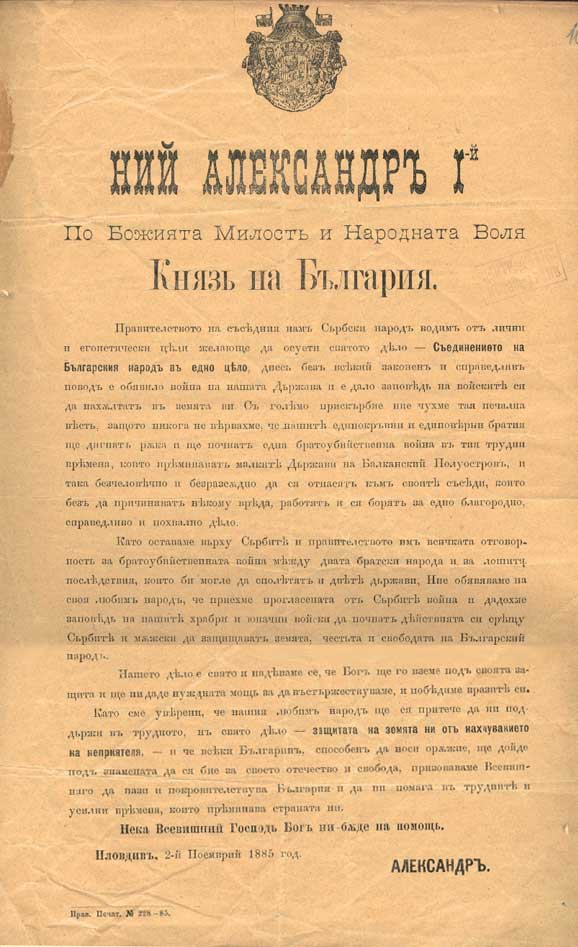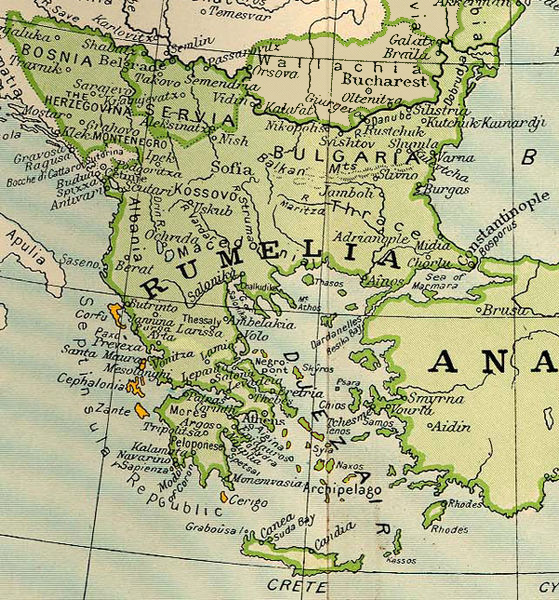|
Foreign Relations Of Serbia
Foreign relations of Serbia are accomplished by efforts of the Ministry of Foreign Affairs. Serbia has inherited the Ministry of Foreign Affairs, along with all of its holdings, after the dissolution of the previous state union with Montenegro. Serbian foreign ministries continue to serve citizens of Montenegro in countries that do not have Montenegrin diplomatic presence. The governments of Serbia and Montenegro expressed an interest in pursuing a common foreign policy. Former President of Serbia Boris Tadić referred to relations with the European Union (EU), Russia, United States and China as the four pillars of foreign policy. Serbia joined the United Nations on 1 November 2000. History Medieval Serbia In the centuries prior to Ottoman rule in the country, medieval Serbian states established diplomatic relations with a number of states in Europe and the Mediterranean, particularly under the Nemanjić dynasty, during which time the Serbian Empire reached its greatest extent. ... [...More Info...] [...Related Items...] OR: [Wikipedia] [Google] [Baidu] |
Serbia
Serbia (, ; Serbian language, Serbian: , , ), officially the Republic of Serbia (Serbian language, Serbian: , , ), is a landlocked country in Southeast Europe, Southeastern and Central Europe, situated at the crossroads of the Pannonian Basin and the Balkans. It shares land borders with Hungary to the north, Romania to the northeast, Bulgaria to the southeast, North Macedonia to the south, Croatia and Bosnia and Herzegovina to the west, and Montenegro to the southwest, and claims a border with Albania through the Political status of Kosovo, disputed territory of Kosovo. Serbia without Kosovo has about 6.7 million inhabitants, about 8.4 million if Kosvo is included. Its capital Belgrade is also the List of cities in Serbia, largest city. Continuously inhabited since the Paleolithic Age, the territory of modern-day Serbia faced Slavs#Migrations, Slavic migrations in the 6th century, establishing several regional Principality of Serbia (early medieval), states in the early Mid ... [...More Info...] [...Related Items...] OR: [Wikipedia] [Google] [Baidu] |
Bar, Montenegro
Bar ( Montenegrin and Serbian: Бар, ; sq, Tivar; it, Antivari or ''Antibari'') is a coastal town and seaport in southern Montenegro. It is the capital of the Bar Municipality and a center for tourism. According to the 2011 census, the city proper had 13,503 inhabitants, while the total population of Bar Municipality was 42,068. Name ''Bar'' is a shortened form of ''Antivari''. The name is thought to be derived from the Latin ''Antibarum'' or ''Antibari'', which later in Greek was transformed into ''Antivárion / Antivari'' due to its pronunciation. A name taken because of its location and which means "in front of Bari". Variations are in Italian, ''Antivari / Antibari''; in Albanian, ''Tivari'' or ''Tivar''; in Turkish, ''Bar''; in Greek, Θηβάριον, ''Thivárion'', Αντιβάριον, ''Antivárion''; in Latin, ''Antibarium'' History Ancient times Local archaeological findings date to the Neolithic era. It is assumed that Bar was mentioned as the reconstruc ... [...More Info...] [...Related Items...] OR: [Wikipedia] [Google] [Baidu] |
Serbo-Bulgarian War
The Serbo-Bulgarian War or the Serbian–Bulgarian War ( bg, Сръбско-българска война, ''Srăbsko-bălgarska voyna'', sr, Српско-бугарски рат, ''Srpsko-bugarski rat'') was a war between the Kingdom of Serbia and Principality of Bulgaria that erupted on and lasted until . Despite Bulgaria being a vassal state of the Ottoman Empire, the Turks did not intervene in the war. Serbia took the initiative in starting the war but was decisively defeated. Austria demanded Bulgaria stop its invasion, and a truce resulted. Final peace was signed on in Bucharest. The old boundaries were not changed. As a result of the war, European powers acknowledged the act of Unification of Bulgaria which happened on . Background On , Bulgaria and the semi-autonomous Ottoman province of Eastern Rumelia declared their unification in the city of Plovdiv. Eastern Rumelia, whose population was predominantly ethnic Bulgarian, had been an artificial creation of the ... [...More Info...] [...Related Items...] OR: [Wikipedia] [Google] [Baidu] |
Rumelia
Rumelia ( ota, روم ايلى, Rum İli; tr, Rumeli; el, Ρωμυλία), etymologically "Land of the Names of the Greeks#Romans (Ῥωμαῖοι), Romans", at the time meaning Eastern Orthodox Christians and more specifically Christians from the Byzantine Rite, Byzantine rite, was the name of a historical region in Southeastern Europe that was administered by the Ottoman Empire, corresponding to the Balkans. In its wider sense, it was used to refer to all Ottoman possessions and Vassal state, vassals in Europe that would later be geopolitically classified as "the Balkans". During the period of its existence, it was more often known in English as Ottoman Empire, Turkey in Europe. Etymology ''Rûm'' in this context means "Greek", or a Christian Greek speaker and ''ėli'' means "land" and ''Rumelia'' ( ota, روم ايلى, ''Rūm-ėli''; Turkish language, Turkish: ''Rumeli'') means "Land of the Romans" in Ottoman Turkish language, Ottoman Turkish. It refers to the lands co ... [...More Info...] [...Related Items...] OR: [Wikipedia] [Google] [Baidu] |
Serbia And Vojvodina 1848
Serbia (, ; Serbian: , , ), officially the Republic of Serbia ( Serbian: , , ), is a landlocked country in Southeastern and Central Europe, situated at the crossroads of the Pannonian Basin and the Balkans. It shares land borders with Hungary to the north, Romania to the northeast, Bulgaria to the southeast, North Macedonia to the south, Croatia and Bosnia and Herzegovina to the west, and Montenegro to the southwest, and claims a border with Albania through the disputed territory of Kosovo. Serbia without Kosovo has about 6.7 million inhabitants, about 8.4 million if Kosvo is included. Its capital Belgrade is also the largest city. Continuously inhabited since the Paleolithic Age, the territory of modern-day Serbia faced Slavic migrations in the 6th century, establishing several regional states in the early Middle Ages at times recognised as tributaries to the Byzantine, Frankish and Hungarian kingdoms. The Serbian Kingdom obtained recognition by the Holy See and C ... [...More Info...] [...Related Items...] OR: [Wikipedia] [Google] [Baidu] |
Principality
A principality (or sometimes princedom) can either be a monarchical feudatory or a sovereign state, ruled or reigned over by a regnant-monarch with the title of prince and/or princess, or by a monarch with another title considered to fall under the generic meaning of the term ''prince''. Terminology Most of these states have historically been a polity, but in some occasions were rather territories in respect of which a princely title is held. The prince's estate and wealth may be located mainly or wholly outside the geographical confines of the principality. Generally recognised surviving sovereign principalities are Liechtenstein, Monaco, and the co-principality of Andorra. Extant royal primogenitures styled as principalities include Asturias (Spain). The Principality of Wales existed in the northern and western areas of Wales between the 13th and 16th centuries; the Laws in Wales Act of 1536 which legally incorporated Wales within England removed the distinction between th ... [...More Info...] [...Related Items...] OR: [Wikipedia] [Google] [Baidu] |
Russo-Turkish War (1877–1878)
The Russo-Turkish War of 1877‚Äì1878 ( tr, 93 Harbi, lit=War of ‚Äô93, named for the year 1293 in the Islamic calendar; russian: –Ý—É—Å—Å–∫–æ-—Ç—É—Ä–µ—Ü–∫–∞—è –≤–æ–π–Ω–∞, Russko-turetskaya voyna, "Russian‚ÄìTurkish war") was a conflict between the Ottoman Empire and a coalition led by the Russian Empire, and including Bulgaria, Romania, Serbia, and Montenegro. Fought in the Balkans and in the Caucasus, it originated in emerging 19th century Balkan nationalism. Additional factors included the Russian goals of recovering territorial losses endured during the Crimean War of 1853‚Äì56, re-establishing itself in the Black Sea and supporting the political movement attempting to free Balkan nations from the Ottoman Empire. The Russian-led coalition won the war, pushing the Ottomans back all the way to the gates of Constantinople, leading to the intervention of the western European great powers. As a result, Russia succeeded in claiming provinces in the Caucasus, namely Kars and Batum, a ... [...More Info...] [...Related Items...] OR: [Wikipedia] [Google] [Baidu] |
Miloš Obrenović
Milo≈°, Milos, Mi≈Çosz or spelling variations thereof is a masculine given name and a surname. It may refer to: Given name Sportsmen * Mi≈Çosz Bernatajtys, Polish rower * Milo≈° Bogunoviƒá, Serbian footballer * Milo≈° Budakoviƒá, Serbian footballer * Milo≈° ƒÜuk, Serbian water polo player, Olympic champion * Milo≈° Dimitrijeviƒá, Serbian footballer * Milo≈° Holu≈°a, Czech race walker * Milo≈° Jojiƒá, Serbian footballer * Milo≈° Korolija, Serbian water polo player * Milo≈° Krasiƒá, Serbian footballer * Milo≈° Mariƒá, Serbian footballer * Milo≈° Milo≈°eviƒá, Croatian swimmer * Milo≈° Milutinoviƒá, Serbian footballer and manager * Milo≈° Nikiƒá, Serbian volleyball player * Milo≈° Ninkoviƒá, Serbian footballer * Milo≈° Pavloviƒá (racing driver), Serbian racing driver * Milos Raonic, Montenegrin-born Canadian tennis player * Milo≈° Stanojeviƒá (rower), Serbian rower * Milo≈° ≈Ýestiƒá, Serbian footballer * Milo≈° Teodosiƒá, Serbian basketball player * Milo≈° Terziƒá, Serbian vo ... [...More Info...] [...Related Items...] OR: [Wikipedia] [Google] [Baidu] |
Second Serbian Uprising
The Second Serbian Uprising ( sr, Други српски устанак / ''Drugi srpski ustanak'', tr, İkinci Sırp Ayaklanması) was the second phase of the Serbian Revolution against the Ottoman Empire, which erupted shortly after the re-annexation of the country to the Ottoman Empire in 1813. The occupation was enforced following the defeat of the First Serbian Uprising (1804–1813), during which Serbia existed as a ''de facto'' independent state for over a decade. The second revolution ultimately resulted in Serbian semi-independence from the Ottoman Empire. The Principality of Serbia was established, governed by its own parliament, constitution and royal dynasty. ''De jure'' independence, however, was attained in 1878, following the decisions of the Congress of Berlin. Background The First Serbian Uprising liberated the country for a significant time (1804–1813) from the Ottoman Empire; for the first time in three centuries, Serbs governed themselves without the su ... [...More Info...] [...Related Items...] OR: [Wikipedia] [Google] [Baidu] |
Đorđe Petrović
Đorđe ( sr-Cyrl, Ђорђе;transliterated Djordje) is a Serbian given name, a Serbian variant, derived from Greek '' Georgios'' (''George'' in English). Other variants include: Đurđe, Đurađ, Đura, Đuro, Georgije. It may refer to: * Đorđe Andrejević Kun (1904–1964), Serbian painter * Đorđe Babalj (born 1981), Serbian association football player * Đorđe Balašević (1953–2021), Serbian and former Yugoslav recording artist and singer-songwriter * Đorđe Bogić (1911–1941), protopresbyter and parish priest in the Serbian Orthodox Church * Đorđe Čotra (born 1984), Serbian association football player * Đorđe Denić (born 1996), Serbian association football player * Djordje Djokovic (Đorđe Đoković, born 1995), Serbian tennis player * Đorđe Ivelja (born 1984), Serbian association football player * Đorđe Jokić (born 1981), Serbian association football player * Đorđe Jovanović (1861–1953), Serbian sculptor * Đorđe Kamber (born 1983), Bosnian- ... [...More Info...] [...Related Items...] OR: [Wikipedia] [Google] [Baidu] |




